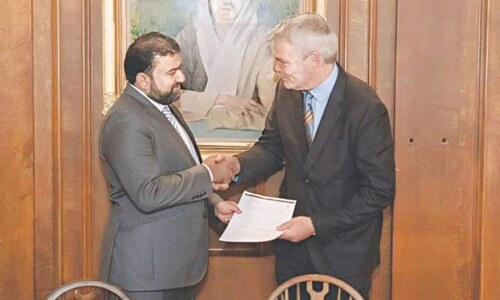OSLO: Nobel Peace Prize laureate Malala Yousafzai on Tuesday urged world leaders to cut “eight days of military spending” to give all children access to 12 years of free education.
About $39 billion would be needed each year to fund the schooling, according to an estimate from the laureate’s non-profit group, the Malala Fund.
“It may appear as a huge number but the reality is it is not much at all,” Malala said at a UN education summit in Oslo, as she returned to the city for the first time since picking up the Peace Prize along with child rights activist Kailash Satyarthi in December last year.
“In fact, and unfortunately, $39bn is spent on (the) military in only eight days,” she said.
Malala met World Bank President Jim Yong Kim in June to discuss the upcoming package of the Sustainable Development Goals the United Nations plans to release later this year. A meeting is scheduled in Addis Ababa, Ethiopia, next week to find ways to finance the new targets.
“My message is that in these goals secondary education would be ensured,” said the education activist, who would turn 18 later this week.
“The money to send each child to primary and secondary education for twelve years for free is already there,” she added.
The United Nations chief joined Malala in calling on the leaders to secure education for young people across the globe.
Describing children as the “seeds of future progress”, Secretary-General Ban Ki-moon said that education was “the soil to help them grow into global citizens”.
In September the UN will weigh proposals about which targets countries should achieve in the next 15 years. The new targets will replace the Millennium Development Goals (MDGs) created in 2000. A UN report said the MDGs had helped lift millions out of poverty, as the number of people living in extreme poverty declined by more than half between 1990 and 2015, from 1.9bn to 836 million. In the same period, the number of children dying before their fifth birthday fell by more than half, dropping from 90 to 43 deaths per 1,000 births.
Published in Dawn, July 8th, 2015
On a mobile phone? Get the Dawn Mobile App: Apple Store | Google Play












































Dear visitor, the comments section is undergoing an overhaul and will return soon.